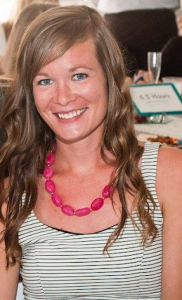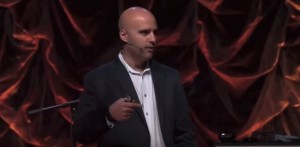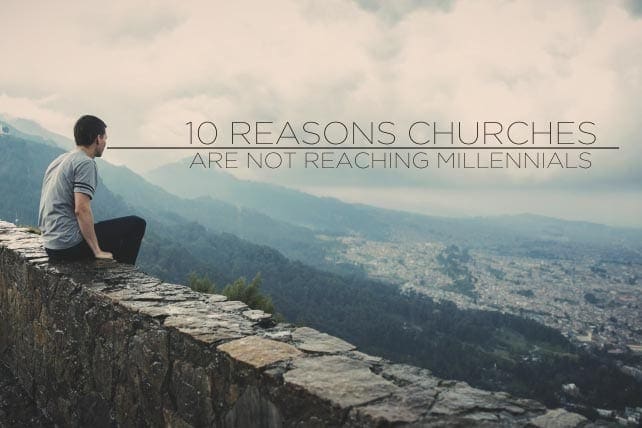(This is part of a series written by Millennials who have either left or stuck with the church. If you are a Millennial and would like to submit your work for publication, you will earn $100. Here is the link. To read more stories by Millennials search Millennial Exodus. If you would like to fund our research among emerging adults, click here.)
Here is Abby’s Story
Churches and Christians often get bad reputations. They are called judgmental, close-minded, uninviting, and even hypocritical at times. I would like to call a news flash – because all humans are hypocritical, not just those who entitle themselves Christians!
 There are a million reasons for someone to not feel compelled to go to church. You may get incredibly annoyed and turned away from God when you read “Christian” statuses on Facebook. You may not believe that you need to go to church in order to go to heaven. You may think you don’t have time for church. You may not like what a particular church teaches. You may believe God has caused you suffering so you are turned away. You may think you’re too broken for church – what you’ve done is too bad to step foot into a church and ask for forgiveness.
There are a million reasons for someone to not feel compelled to go to church. You may get incredibly annoyed and turned away from God when you read “Christian” statuses on Facebook. You may not believe that you need to go to church in order to go to heaven. You may think you don’t have time for church. You may not like what a particular church teaches. You may believe God has caused you suffering so you are turned away. You may think you’re too broken for church – what you’ve done is too bad to step foot into a church and ask for forgiveness.
I’m not here to tell you you’re wrong; I don’t know what you’re going through. But, I am here to tell you that whatever your situation might be, you’re missing out.
No matter how good of a person we try to be, none of us are perfect, so we’re going to fail at one point or another. But it’s how you let those experiences change you that shows the world either love or hate. And in this world, everyone feeds off of one another. This world lives by the philosophy an “eye for an eye” or “I didn’t get my way, so I’m certainly not going to let you have yours.” But that’s not what we’re called to do.
Jesus calls us to a different philosophy.
“But I tell you, love your enemies and pray for those who persecute you, that you may be children of your Father in heaven. He causes his sun to rise on the evil and the good, and send rain on the righteous and the unrighteous. If you love those who love you, what reward will you get? … And if you greet only your own people, what are you doing more than others?”
– Matthew 5:38-47
Living like Jesus is much easier said than done. Living like Jesus would be living perfectly in an imperfect world. If you’re consistently trying to live in this manner, it can be flat out exhausting. If you pour your heart and soul out for others on a regular basis in this broken world, you will grow weary. And eventually, your cup becomes empty, and you can’t pour out from an empty cup. If you don’t have a church and a church family to turn to, who will help remind you to turn to Jesus to become refilled?
What Jesus has to offer turns being overwhelmed with anxiety, fear, and depression into being overwhelmed with peace and love. It turns not ever having enough into having more than you ever could have asked for, even if it is nothing like you planned your life to be.
I’m living proof that lives can be completely transformed when you feel like there’s no hope ahead if you stay in the church. I’m living proof that darkness can be turned into light with the help of Jesus himself. I’m living proof that if you persevere through the times where it’s not easy and you have Jesus by your side, your life will eventually be filled with joy, regardless of what you’re going through. I can promise you that my darkness would still be darkness if I didn’t have the church and Jesus in my life. There would be no hope for my future.
I dare you to prove me wrong by trying it yourself.
 Abby Allen is a full-time physical therapist from Springfield, IL. She spends her days doing her best to be Jesus’ hands and feet, facilitating healing of all her patients each day. In her free time, she enjoys writing inspirational and encouraging blog posts, which are written purely from whatever may be weighing on her heart at that time.
Abby Allen is a full-time physical therapist from Springfield, IL. She spends her days doing her best to be Jesus’ hands and feet, facilitating healing of all her patients each day. In her free time, she enjoys writing inspirational and encouraging blog posts, which are written purely from whatever may be weighing on her heart at that time.
 At the developmental margins by definition, the in-betweeness of young adults is a huge part of why congregations are so flummoxed about them. Churches have long served children, youth, parents, empty-nesters, and elders. But emerging adults are a special kind of moving target, no longer youth but not quite adults.
At the developmental margins by definition, the in-betweeness of young adults is a huge part of why congregations are so flummoxed about them. Churches have long served children, youth, parents, empty-nesters, and elders. But emerging adults are a special kind of moving target, no longer youth but not quite adults. Dr. G. David Boyd is the Managing Director of EA Resources. He is also the Founder of the EA Network, a network of those who seek to understand and meet the needs of emerging adults.
Dr. G. David Boyd is the Managing Director of EA Resources. He is also the Founder of the EA Network, a network of those who seek to understand and meet the needs of emerging adults.









 Skye is ordained in the Christian & Missionary Alliance, a Protestant denomination established in 1887. He earned a Masters of Divinity degree in 2001 from Trinity Evangelical Divinity School in Deerfield, Illinois.
Skye is ordained in the Christian & Missionary Alliance, a Protestant denomination established in 1887. He earned a Masters of Divinity degree in 2001 from Trinity Evangelical Divinity School in Deerfield, Illinois.



 Abby Allen is a full-time physical therapist from Springfield, IL. She spends her days doing her best to be Jesus’ hands and feet, facilitating healing of all her patients each day. In her free time, she enjoys writing inspirational and encouraging blog posts, which are written purely from whatever may be weighing on her heart at that time.
Abby Allen is a full-time physical therapist from Springfield, IL. She spends her days doing her best to be Jesus’ hands and feet, facilitating healing of all her patients each day. In her free time, she enjoys writing inspirational and encouraging blog posts, which are written purely from whatever may be weighing on her heart at that time.